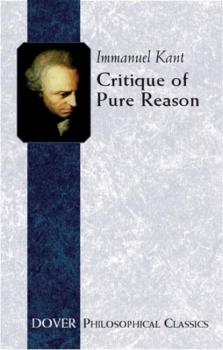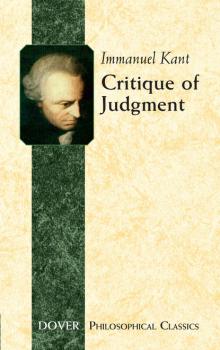ТОП просматриваемых книг сайта:
Философия
Различные книги в жанре Философия, доступные для чтения и скачиванияАннотация
Charles S. Peirce in the opinion of many authorities was the most profound and original philosopher that America has produced. A master of exact science, our foremost logician, the founder of pragmatism, Peirce was one of the most remarkable and versatile minds of the 19th century, whose scattered writings made important contributions to such varied fields of logic, mathematics, geodesy, religion, astronomy, chemistry, physics, psychology, history of science, metaphysics, education, semeiotics, and more. Considered by William James the most original thinker of their generation, he exerted a tremendous influence on James, Josiah Royce, John Dewey, C. I. Lewis, Ernst Schröder, among many others.Professor Wiener's well-balanced selections introduce the reader to the many sides of Peirce's thought. He presents such famous essays as «The Fixation of Belief,» «How to Make Our Ideas Clear,» «The Architecture of Theories,» and others, along with several pieces that are not available elsewhere. Of particular interest today, when the problem of humanizing the sciences is the acute problem of our age, there are certain selections, previously neglected by students and editors of Peirce's work, which deal with the cultural or humanistic aspects of science and philosophy.The 24 selections in this book are organized into five categories: science, materialism, and idealism; pragmatism (or as Peirce preferred, pragmaticism); the history of scientific thought; science and education; and science and religion. Included are articles originally published in North American Review, Journal of Speculative Philosophy, The Monist, Popular Science Monthly, and Educational Review; extracts or transcriptions of speeches; book reviews; letters; and previously unpublished manuscripts from the Smithsonian Institution, the Lowell Institute, and the Widener Library Archives in Harvard University, Professor Wiener's excellent introduction and prefaces to the selections supply the reader with important historical and analytical background material.
Аннотация
The most famous and influential work of distinguished French philosopher Henri Bergson (1859–1941), Creative Evolution features the fullest expression of the philosopher's ideas about the problem of existence, propounding a theory of evolution completely distinct from these of earlier thinkers and scientists.In discussing the meaning of life, Bergson considers the order of nature and the form of intelligence, including the geometrical tendency of the intellect, and examines mechanisms of thought and illusion. In addition, he presents a critique of the idea of immutability and the concept of nothingness, from Plato and Aristotle through the evolutionism of his contemporaries.Bergson's influence on Marcel Proust and other twentieth-century writers renders a grasp of his theories imperative to students of literature as well as philosophy. Historians of science and other readers will also appreciate the importance of this milestone in philosophical and evolutionary thought.
Аннотация
First published in 1789, Jeremy Bentham's best-known work remains a classic of modern philosophy and jurisprudence. Its definitions of the foundations of utilitarian philosophy and its groundbreaking studies of crime and punishment retain their relevance to modern issues of moral and political philosophy, economics, and legal theory.Based on the assumption that individuals seek pleasure and avoid pain, Bentham's utilitarian perspective forms a guide to moral decision-making. With the «greatest happiness of the greatest number» as his objective, the author attempts to identify the sources and varieties of pleasure and pain as well as the ways in which they can be measured in assessing moral options. Considerations of intentionality, consciousness, motives, and dispositions support Bentham's arguments. The text concludes with his survey of purpose and the role of law and jurisprudence, a fascinating exercise in the theory of social reform that explores conflicts between the interests of the majority and individual freedom.
Аннотация
An exploration of the nature of reality, mysticism begins with the individual struggle toward a clear vision and culminates in a transformed consciousness. This marvelous guide to the contemplative life originated with the reflection of an unknown fourteenth-century priest who believed that a «cloud of unknowing» separates people from God. This cloud, he maintained, cannot be penetrated by intellect —only by love.The Cloud of Unknowing offers an approach to contemplative life that finds holiness at a level deeper than physical experience and beyond language or image. The author advises placing all thought and mental imagery behind a metaphorical «cloud of forgetting» while seeking to love the divine. Hidden from the infinite consciousness by a «cloud of unknowing,» divine love can be reached through monologistic prayer — a single-word prayer, like a mantra, that assists in abandoning all extraneous thought. Seekers can thus attain an inner silence, where they may «be still and know the sacred.»The author's spiritual gifts, combined with his humorous and straightforward approach, offer a view of divinity that never loses the common touch. Written in everyday language and edited by a popular authority on mysticism, this venerable work can be understood and appreciated by any reader.
Аннотация
In his monumental Critique of Pure Reason, German philosopher Immanuel Kant (1724–1804) argues that human knowledge is limited by the capacity for perception. He attempts a logical designation of two varieties of knowledge: a posteriori, the knowledge acquired through experience; and a priori, knowledge not derived through experience. Kant maintains that the most practical forms of human knowledge employ the a priori judgments that are possible only when the mind determines the conditions of its own experience. This accurate translation by J. M. Meiklejohn offers a simple and direct rendering of Kant's work that is suitable for readers at all levels.
Аннотация
This 1790 polemic by one of philosophy's most important and influential figures attempts to establish the principles that support the faculty of judgment. Kant's third critique — after Critique of Practical Reason and Critique of Pure Reason — remains one of the most important works on human reason. The Critique of Judgment informs the very basis of modern aesthetics by establishing the almost universally accepted framework for debate of aesthetic issues.As in his previous critiques, Kant seeks to establish a priori principles. The first part of this work addresses aesthetic sensibility. The human response to specific natural phenomena as beautiful, he asserts, is a recognition of nature's harmonious order that corresponds to a mental need for order. The critique's second half focuses on the apparent teleology in nature's design of organisms. The philosopher declares that the mind is predisposed to find purpose and order in nature, and this predisposition forms the main principle underlying all our judgments. Although this could be interpreted as an argument in favor of a creator, Kant insists that a supernatural dimension or the existence of God cannot be proven — such considerations lie beyond the realm of reason, solely within the province of faith.
Аннотация
Internationally known and one of the most influential philosophers of his day (and for a time almost a cult figure in France, where his lectures drew huge crowds), Henri Bergson (1859-41) led a revolution in philosophical thought by rejecting traditional conceptual and abstract methods, and arguing that the intuition is deeper than the intellect. His speculations, especially about the nature of time, had a profound influence on many other philosophers, as well as on poets and novelists; they are said to have been the seed for À la recherce de temps perdu by Marcel Proust (whose cousin was Bergson's wife). Though his ideas were sometimes difficult to follow, Bergson was also a fine stylist, who once declared, «there is nothing in philosophy which could not be said in everyday language,» and who was awarded the Nobel Prize for Literature in 1927.In Time and Free Will, written as his doctoral thesis, Bergson tries to dispel the arguments against free will. These arguments, he shows, come from a confusion of different ideas of time. Physicists and mathematicians conceive of time as a measurable construct much like the spatial dimensions. But in human experience, life is perceived as a continuous and unmeasurable flow rather than as a succession of marked-off states of consciousness — something that can be measured not quantitatively, but only qualitatively. And because human personalities express themselves in acts that cannot be predicted, Bergson declares free will to be an observable fact. Students and teachers of philosophy are sure to welcome this inexpensive reprint of Bergson's classic, influential essay, long a staple of college philosophy courses.
Аннотация
How do we decide what is «good» and what is «bad»? According to the ethical theory of Utilitarianism, to do good is to «always perform that act, of those available, that will bring the most happiness or the least unhappiness.» By far the most widely read introduction to this theory, John Stuart Mill's Utilitarianism is one of the most important and controversial works of moral philosophy ever written.In this major contribution to ethical history, Mill's treatise defends the view that all human action should produce the greatest happiness overall, and that happiness itself is made up of «higher pleasures,» such as the cultural, intellectual, and spiritual, and «lower pleasures,» such as the physical. The relationship of utilitarian theory to other ethical systems, and powerful arguments in its favor — especially when concerning justice — are brilliantly discussed. How do we weigh options to maximize happiness for self and for those around us? From common-day dilemmas to large-scale social decisions, this exposition remains as relevant today as it was to intellectual and moral dilemmas of the nineteenth century.
Аннотация
Among the most influential thinkers in Western history, Plato presented his thought in a series of dramatic dialogues in which different speakers present various aspects of a philosophical problem. This volume contains two of the most interesting and important of these dialogues. The philosophic goal of the Symposium is to find the ultimate manifestation of the love that controls the world, leading to mystic union with eternal and supercosmic beauty. Phaedrus discusses the psychology of love, resulting in the concept of the familiar Platonic «forms» as objects of transcendental emotion. In this inexpensive edition of the renowned Jowett translation, they will be welcomed by anyone interested in Greek thought or the philosophy of Plato.
Аннотация
The Dialogues of Plato (427–347 B.C.) rank with the writings of Aristotle as the most important and influential philosophical works in Western thought. In them Plato cast his teacher Socrates as the central disputant in colloquies that brilliantly probe a vast spectrum of philosophical ideas and issues. None is more exciting and revelatory than the four dialogues — Euthyphro, Apology, Crito, and Phaedo — on themes evoked by the trial and death of Socrates, accused by his enemies and detractors of crimes against the state, among them «impiety» and «corruption of the young.»In Euthyphro, Socrates explores the concepts and aims of piety and religion: in Apology, he courageously defends the integrity of his teachings; in Crito, he demonstrates his respect for the law in his refusal to flee his death sentence; and in Phaedo embraces death and discusses the immortality of the soul. The four dialogues are presented here in the authoritative translation by the distinguished classical scholar Benjamin Jowett, renowned for his translations of Plato.










